Dear Guest,
Please register or login. Content don't create itself!
Thank you
-
 Re: Richard Sachs Cycles
Re: Richard Sachs Cycles
Some people have children to gloat over. I have little files. Mine come brand new and with no life experience. Same as most children. I take digital pictures of my files just as a parent would photograph his kids.
My files live on the bench. In small groups. The groups are segregated by when the files arrived. I replace my stash every 3-4 months. We're talking these small guys. Not the longer more aggressive files.
I love my small files the way a father would his child. I baby these. Obsess over them. Very soon I'm unable to tell one from another, and the barrettes get tossed with the flats and these in turn fall next to the round ones.
When enough time passes and the commissions start running into each other, so too do my files. I try to keep the current batch separate from those they replace. But when I replace them. I don't toss them away. They're family.
When the new and the old somehow commingle, even if it happens against my better judgement, I know that it's time. But time for what? Generations of small files all in a single pile. Many still alive and begging me to use them.
Edge is a funny thing. At the front end we all have one. What does it mean when things become dull or soft? Is it better to find that sharpness elsewhere? Or do we hit the reset button and try to recapture what once was?
Everything has an expiration date. A shelf life. When something's brand new it reeks of hope and potential. My little files do. And then one day it's clear - crystal clear - that something has gone missing and it's time for whatever's next.
All This By Hand

-
 Re: Richard Sachs Cycles
Re: Richard Sachs Cycles
-
 Re: Richard Sachs Cycles
Re: Richard Sachs Cycles
Q: How does one say “Bring back the elegance” in Italian?
A: One doesn’t since the Italians never lost it.
-
 Re: Richard Sachs Cycles
Re: Richard Sachs Cycles

Originally Posted by
happycampyer

Q: How does one say “Bring back the elegance” in Italian?
A: One doesn’t since the Italians never lost it.
Not really.
Just have a look at any Pinarello bike 
"Caron, non ti crucciare:
vuolsi così colà dove si puote
ciò che si vuole, e più non dimandare"
-
 Re: Richard Sachs Cycles
Re: Richard Sachs Cycles
-
the light in my workroom
Intoxicates
Encourages
Informs
Teases
Nurtures
Lures
Begs
Gives
Refuses
Belittles
Commands
Colors
Darkens
Ignores
Listens
Teaches
Confounds
Argues
Agrees
Always
Never
All This By Hand
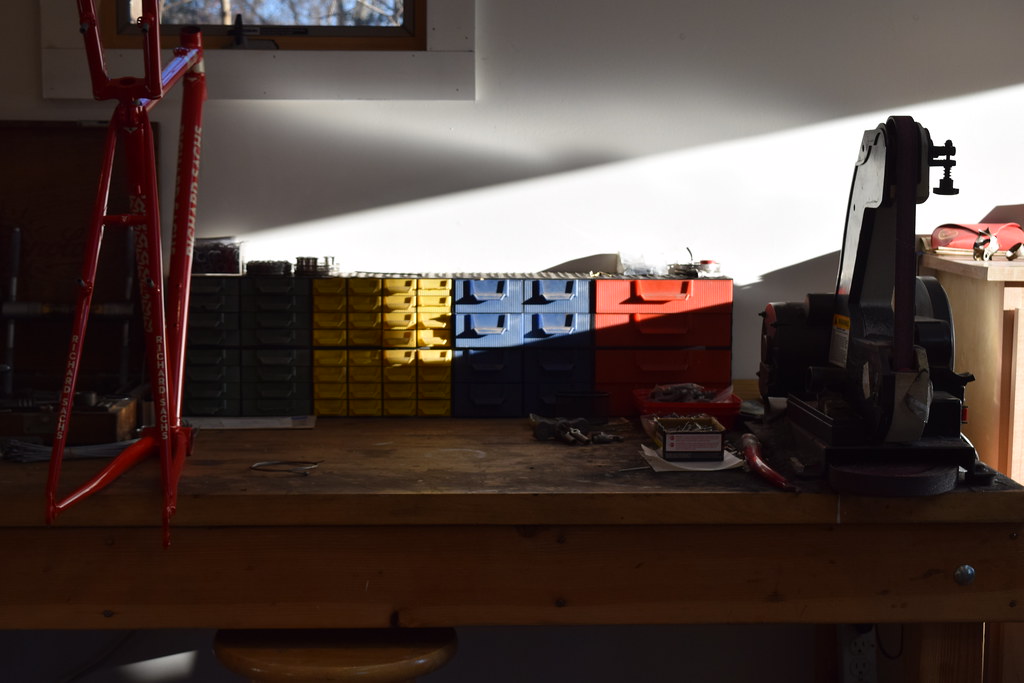
-
 Re: Richard Sachs Cycles
Re: Richard Sachs Cycles
My Peddie School motto is Finimus Pariter Renovamusque Labores. We finish our labors to begin them anew. That's gold, Jerry. Gold. But how many times do we end only to start over? Is it measured in units? Years? I wonder about these things.
TLD™ (my wife, the lovely Deb) is a longtime Joseph Campbell reader. And she (TLD™) says that he (Campbell) says that as you get older you go from a life of achievement to a life of appreciation. Those words have been in conversations here forever.
I love the work I do. I love the finished product a bit less than I love the process. The bicycle I hand to a waiting client represents the best I can do. But that's all. The process, especially when I begin anew, represents hope. Possibly next level hope.
There's never been an end in sight, much less in thought bubbles that hover above and to the left of my head. I can't imagine a last one until that fateful time when there are no tomorrows. Appreciation, for me, is rooted in knowing that there's always another chance.
In all of order there is disorder. In all of disorder there is order. Somewhere between the beginning (hope) and the end (appreciation) is the where the streets of order and disorder intersect. I live on that very corner, and have for all my adult life (so far).
All This By Hand

-
 Re: Richard Sachs Cycles
Re: Richard Sachs Cycles
-- daily i live with sooo many imperfections within trying my best climb towrd perfection...
Richie.., thank you for keeping the bar high...
ronnie with a smile
-
 Re: Richard Sachs Cycles
Re: Richard Sachs Cycles
-
 Re: Richard Sachs Cycles
Re: Richard Sachs Cycles
The most important part of what I do isn't what I give to a client after some 3-4 days at the workbench. It's not the design. Or the personal service. Or the paint. But without the paint I may second guess some of my opinions. I'm lucky. JB and I have been a couple for almost four decades. But the decorations, the beautiful high-gloss finishes, the immaculate handcraft - these would be nothing if I didn't know where the line was. If I occasionally cross it, fine. So be it. But the drill is getting as close as I can without having so much as a toe on the other side. It's more important to know what to leave out than it is what to go forward with. That's why every bicycle has just a wee bit less than it might otherwise. And most of that bit lands to the left of where I stand each day. The bicycle is all of this. All of it. But I keep some of it here to remind to stop at the right moment rather than a second or ten too late.
All This By Hand

-
 Re: Richard Sachs Cycles
Re: Richard Sachs Cycles
When I first held a bottom bracket shell in my hand, it was a seriously crude piece of work by today’s standards. Though the areas meant for business (the pockets for the tubes and stays, the threads and faces for the bearing units) were well-machined, the task of preparation, ornamentation and finish work were left for the framebuilder to carry out. You see, back then framebuilders were also metalsmiths, artisans if you will, not simply joiners and assemblers as we have become these days. Though working with the torch was generally left to the most senior members of a framebuilding concern’s staff, the preparation and reworking of all the little fittings was carried out at the workbench of those being groomed to, one day, many years later, become competent framebuilders. This is how we cut our teeth in those days. The quality of even the finest components was so poor that, unless one developed the skills to reshape, file, fit, re-fit, and thin - unless one had the hands and eyes to discern the right clearance and proper aesthetics - no piece would get far enough along in the building process for the masters to be able to perform their magic.
All This By Hand

-
 Re: Richard Sachs Cycles
Re: Richard Sachs Cycles
-
 Re: Richard Sachs Cycles
Re: Richard Sachs Cycles
TLD™. My wife. The Lovely Deb. Before she became a full time book reviewer for Kirkus she got a Masters Degree in Writing for Children from Simmons College. And before this, Deb was a Licensed Massage Therapist for a decade. And a Body Talk practitioner. And a Reiki master. Energy work etc etc. And before all of this BUT after yet AFTER another career as a film producer, TLD™ was a maker. Deb spent a decade maybe more creating period correct woven baskets and fabrics. The former were often made from materials that came from a tree that Deb helped fell. The latter were always woven on one of her two 18th Century looms, the yarns from materials spun by her before weaving commenced and correctly dyed (when appropriate) after the items came off the loom.
These images? Deb was invited to The White House. That White House. TLD™ was a celebrated crafts person for most of a decade. Her output, limited as it was, earned her repeated honors (five. straight. years.) on the Early American Life Magazine’s annual list of The Finest 200 Craftsmen in America. One year, the Clinton administration aligned with EAL to bring the wares of some of these makers to Washington DC to be displayed through the holiday months. In one of these pictures, Deb is staring at the Christmas tree on which one of her baskets is hanging. After all the formalities ran their course, the items Deb made became part of the permanent collection at 1600 Pennsylvania Avenue.
Ya. I love The Lovely Deb. More than that, I’m so proud of everything she’s done.
All This By Hand


-
 Re: Richard Sachs Cycles
Re: Richard Sachs Cycles
-
 Re: Richard Sachs Cycles
Re: Richard Sachs Cycles
find something
anything
then make it beautiful
then make it more beautiful
All This By Hand

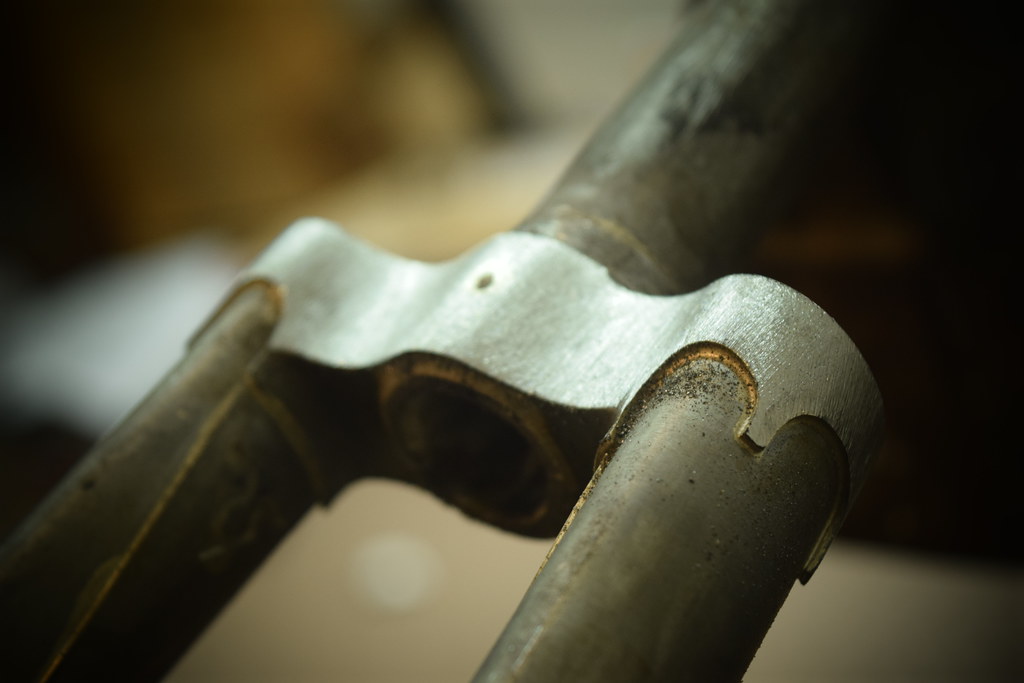
-
 Re: Richard Sachs Cycles
Re: Richard Sachs Cycles
-
We went home today. If only for the afternoon. To where woods and pond separated us from everything. When solitude was routine. And we were alone.
Why didn't you stay? Why did you leave? Questions asked often. The answer for each is different. It was time. Isolation is a gift. Too much of it isn't.
We went back to where eight years happened. To higher ground and wider sky. Where we shared a single heartbeat. A long one. That still lasts. And is strong.
We came home this evening. To a place less remote. But quiet nonetheless. For a few hours we were in both places. That too is a gift.
All This By Hand

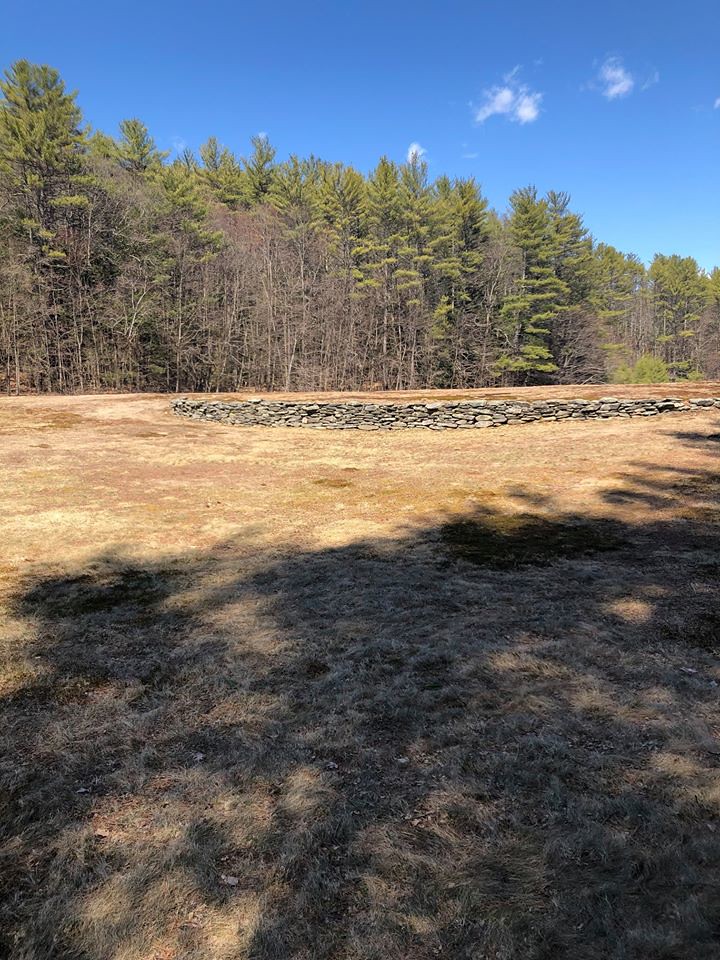


-
 Re: Richard Sachs Cycles
Re: Richard Sachs Cycles
This is Charles Barrett. He was at Witcomb Lightweight Cycles when I arrived in 1972. I was 18. He was my age, maybe younger. Charles was one of the primary framebuilders. He wasn't a racer or a rider. He did have skills at the bench. As a teenager, Charles took a job at Tanners Hill, watched as Barry and Jim made frames, and eventually was given the responsibility of filling orders.
My vice was across from Charles' table. All day long I'd glance over and try to pick up whatever I could. Study his body english. Watch intensely as he brazed a frame section in the hearth. I tried imagine Charles' thoughts as he whaled on a lug with his hand files. I wondered about his inspirations. And if he would want his name on the down tube some day.
Charles was pragmatic about his role. Everyone there was. Making bicycle frames was a job. Labor. They toiled to make each one beautiful. But craft was an afterthought. It was also a term I never heard used at the shop. These men were working for a paycheck, not bleeding for their art. This is a lesson I took home with me later in 1973 and never forgot.
All This By Hand

-
 Re: Richard Sachs Cycles
Re: Richard Sachs Cycles
In 1972 when I arrived at Witcomb Lightweight Cycles, Robert Morley had already been there for a while. He was a local boy, younger than I was at the time (and still is, by the way) and doing whatever needed to be done. Assembling, shipping, but not making frames. I left almost a year later and Rob was still there.
This kid was a font of information. Rob knew the codes for all the spares of every small Campagnolo part. This, in a time when there was no SRAM or Shimano. He knew the differences between the brake casing paths of a Merckx versus a Barras or a Verbeek. Rob knew who made the frames labeled Bird Brothers that Mick Ballard or Alf Engers rode. But I think Rob (like me) was a Derek Cottington fan.
It was a different trade then. Smaller too, but that doesn't tell the story. Folks like Robert Morley were the backbone of all the cliques we traveled in. Some people raced. Some even raced well. But others were equal parts of the whole. As if cycling was a net that caught all of us. The Robs were there to balance the scale. Or maybe that's what everyone else was for.
All This By Hand

-
 Re: Richard Sachs Cycles
Re: Richard Sachs Cycles
Richard, I had a friend that rode a Bird Brothers. Beautiful frame, do you know who made Bird Brothers frames? I always they were a couple guys like the Taylor brothers. A family of guys building frames.
-
 Re: Richard Sachs Cycles
Re: Richard Sachs Cycles

Originally Posted by
Moke

Richard, I had a friend that rode a Bird Brothers. Beautiful frame, do you know who made Bird Brothers frames? I always they were a couple guys like the Taylor brothers. A family of guys building frames.
Many people made the frames. The brothers were "just" retailers and supporters of cycling. It was typical (then) for shops to get frames from suppliers like Tonard and just apply crack and peel decals to them when they arrived.
-
 Re: Richard Sachs Cycles
Re: Richard Sachs Cycles

Originally Posted by
e-RICHIE

It was a different trade then.
Thank you for the picture and the information. I note the 40 spoke rear and 32 spoke front wheel combination.
 Posting Permissions
Posting Permissions
- You may not post new threads
- You may not post replies
- You may not post attachments
- You may not edit your posts
-
Forum Rules



 Likes:
Likes: 




 Reply With Quote
Reply With Quote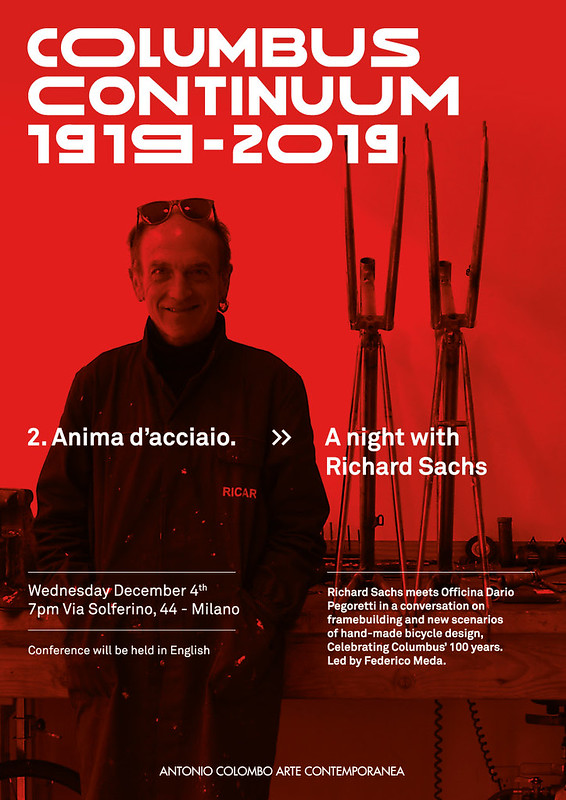




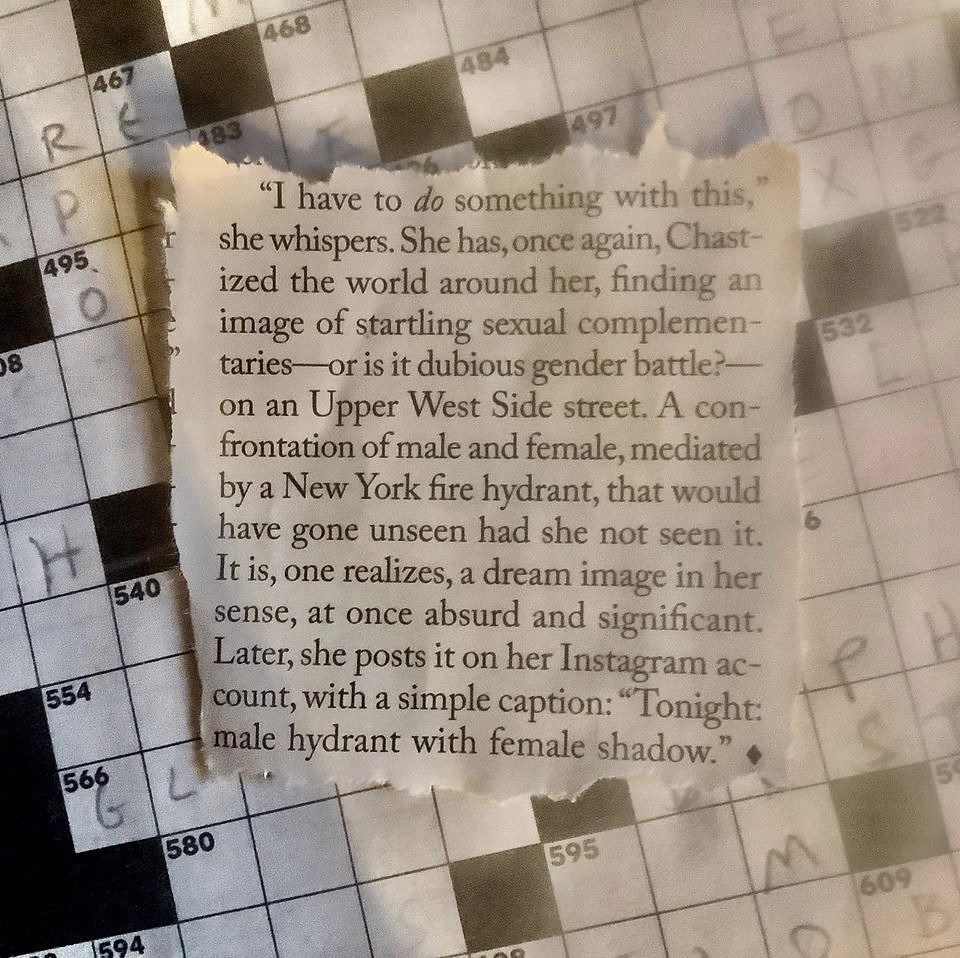
















Bookmarks